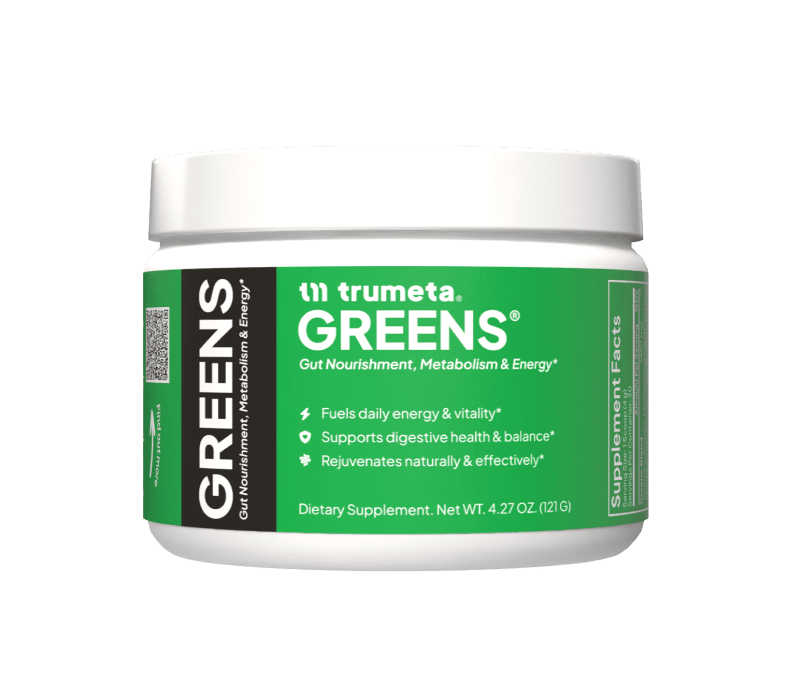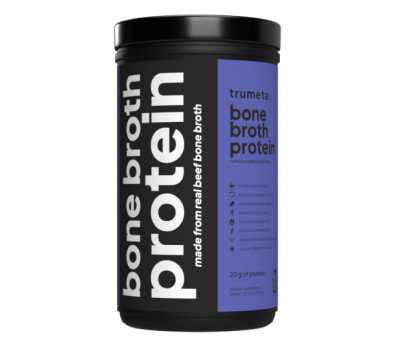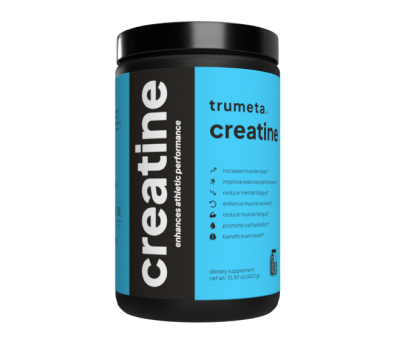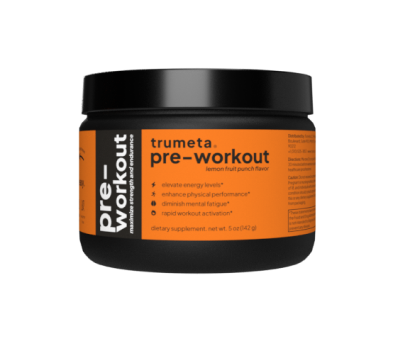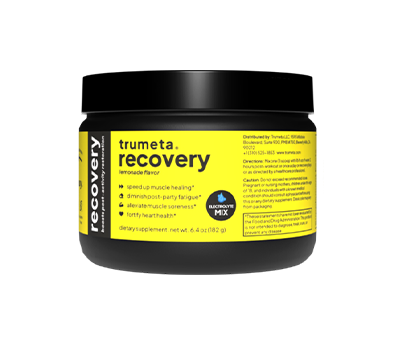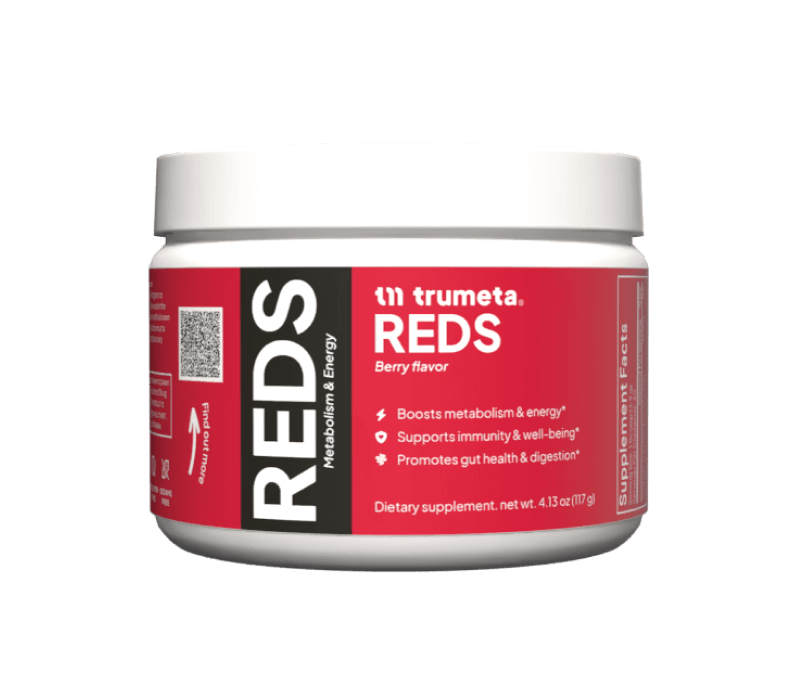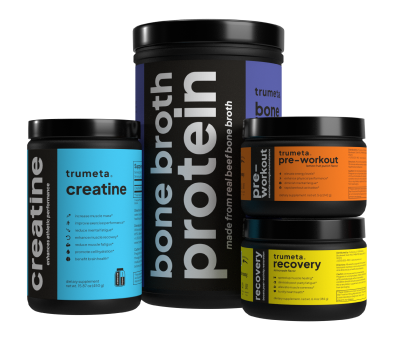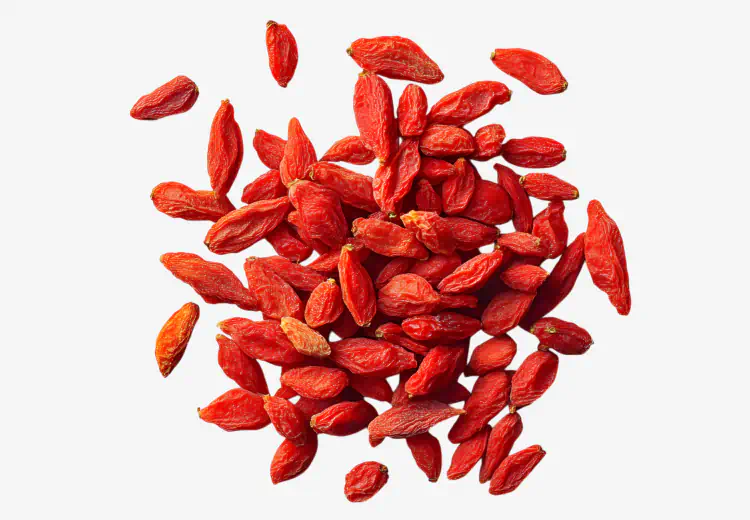
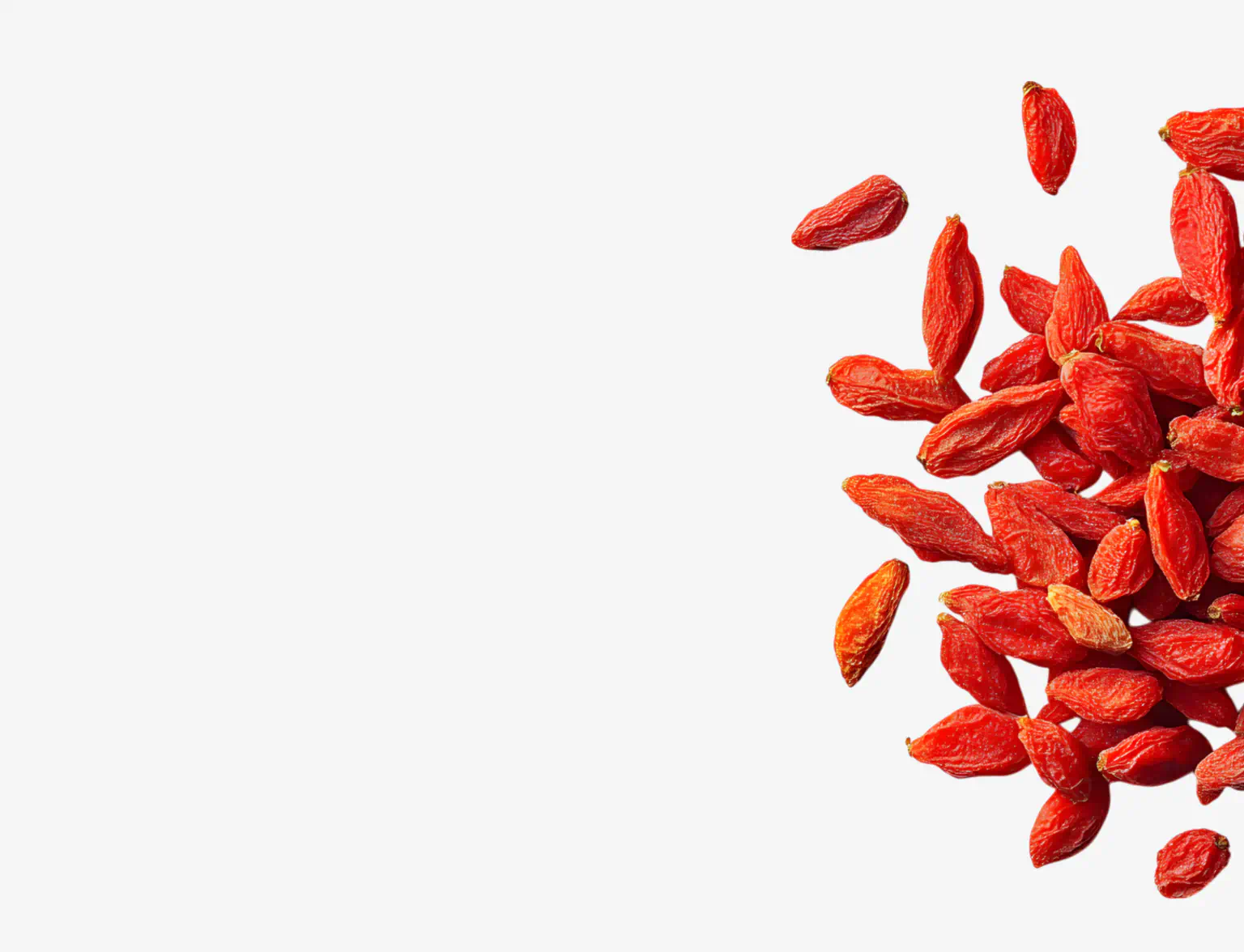

Organic goji:
Benefits for longevity & vitality
Organic goji berries have earned their place among the world's most celebrated superfruits, with their brilliant red hue and uniquely sweet-tart flavor profile. Native to Asia and cultivated for thousands of years, these small but mighty berries have long been treasured in traditional wellness practices. Grown without synthetic pesticides or chemical interventions, organic varieties preserve the berry's natural nutritional integrity while supporting sustainable farming methods.
The distinctive taste—somewhere between cranberry and cherry with subtle herbal notes—makes these berries a versatile culinary addition. Beyond their appealing flavor, organic goji berries contain an exceptional concentration of vitamins, minerals, and bioactive compounds that contribute to their reputation as a longevity-supporting superfood. From smoothie bowls to savory dishes, these adaptable berries bring both nutrition and unique flavor to the table.
Benefits of Organic Goji Berries
These ruby-red morsels deliver a remarkable spectrum of health-supporting properties that few foods can match. Goji berries have been traditionally used as a longevity tonic in several Asian cultures.
Rich in Antioxidants
The vibrant color of goji berries signals their exceptional antioxidant content, particularly zeaxanthin—a carotenoid that few other foods contain in significant amounts. This powerful compound helps neutralize harmful free radicals that can damage cells and accelerate aging processes.
Supports Eye Health
The exceptional concentration of zeaxanthin in goji berries makes them particularly beneficial for vision and eye health. This specialized carotenoid accumulates in the macula of the eye, where it helps filter harmful blue light and protect delicate retinal tissues.
Unlike many nutrients, zeaxanthin can't be produced by the human body and must come from dietary sources. Few foods contain significant amounts of this compound, making organic goji berries an especially valuable addition to an eye-supportive diet.
Enhances Energy and Vitality
Unlike the temporary boost from caffeine or sugar, goji berries provide sustained energy through their balanced combination of complex carbohydrates, protein, and fiber.
Traditional wisdom regarding goji's energy-supporting properties now finds scientific support in studies examining their effects on exercise performance and recovery. The complete nutritional package found in organic goji berry contributes to overall vitality when consumed regularly.
Promotes Healthy Skin
The combination of vitamins, minerals, and antioxidants in goji berries creates a comprehensive approach to skin nutrition from within. Their vitamin C content supports natural collagen production, while their antioxidants help protect skin cells from environmental damage.
The beta-carotene in goji berries—responsible for their vivid color—provides additional skin-nurturing benefits. Including these berries in your diet offers nutritional support for skin's natural renewal processes and protective functions.
Forge Your Victory
Key nutrients
Beneath their unassuming appearance, goji berries harbor an astonishing nutritional profile that outshines many common fruits. Their concentrated blend of vitamins, minerals, and specialized plant compounds creates a nutritional synergy greater than the sum of its parts.
Antioxidants
The standout antioxidant in goji berries is zeaxanthin, found in concentrations higher than virtually any other food source. This specialized carotenoid offers targeted protection for cells throughout the body, particularly in the eyes and skin.
Beyond zeaxanthin, goji berries contain a spectrum of other antioxidant compounds including beta-carotene, polysaccharides, and various flavonoids. This diverse antioxidant profile provides comprehensive cellular protection against different types of oxidative stress.
Vitamin A
The remarkable vitamin A content of goji berries comes primarily from beta-carotene, which the body converts as needed. This nutrient plays crucial roles in vision, immune function, and cellular communication throughout the body.
Vitamin C
While not as well-known for vitamin C as citrus fruits, goji berries contain significant amounts of this essential nutrient. Vitamin C supports immune function, collagen production, and works synergistically with other antioxidants.
The natural vitamin C in organic goji berry remains stable in the dried form, making these berries a convenient year-round source.
Iron
Goji berries provide a plant-based source of iron, which is an essential nutrient for the body. This essential mineral supports oxygen transport throughout the body and energy production at the cellular level.
The plant-based iron in goji berries becomes more bioavailable when consumed alongside their natural vitamin C content. This nutritional synergy helps maximize iron absorption, especially valuable for those following plant-based diets.
Fiber
The dietary fiber in goji berries supports digestive health while contributing to their blood sugar-stabilizing effects. Both soluble and insoluble fibers are present, offering comprehensive gut health benefits.
Beyond digestion, the fiber in goji berries helps maintain healthy cholesterol levels and feeds beneficial gut bacteria. This prebiotic effect supports the microbiome—increasingly recognized as central to overall wellness and immunity.
How to Use Organic Goji Berries?
The versatility of goji berries makes them one of the most adaptable superfoods in the kitchen. Their mildly sweet-tart flavor complements both sweet and savory dishes, while their nutritional profile enhances virtually any recipe.
Dried organic goji berries need no preparation—simply enjoy them straight from the package as a snack, or rehydrate them by soaking in water for 10-15 minutes until plump. This soaking liquid becomes infused with nutrients and flavor, making it worth saving for smoothies or tea.
Explore these creative ways to incorporate goji berries into your daily routine:
- Sprinkle dried berries over morning oatmeal or yogurt bowls
- Blend organic goji powder into smoothies for concentrated nutrition
- Add to homemade trail mix with nuts and dark chocolate pieces
- Steep in hot water for a naturally sweet herbal tea
- Incorporate into baked goods like muffins or energy bars
- Mix into rice or grain dishes for color and subtle sweetness
- Simmer into sauces or dressings for unique flavor notes
- Infuse into vodka or other spirits for distinctive cocktails
For convenience and concentrated nutrition, organic goji berry powder offers exceptional versatility. This shelf-stable form concentrates the berries' nutrients into an easily incorporated powder that can be added to virtually any recipe without changing textures.
When selecting whole berries, choose those with vibrant color and pliable texture, avoiding excessively hard or discolored specimens. Store dried goji berries in an airtight container in a cool, dark place for up to a year, or refrigerate for extended freshness.
Nutritional Information
The remarkable nutrient density of organic goji berries becomes apparent when examining their nutritional profile. These small berries pack substantial nutrition into every serving, with minimal calories and virtually no fat.
Here's what you'll find in a 1-ounce (28-gram) serving of dried organic goji berries:
- Calories: 98
- Protein: 4 grams
- Carbohydrates: 21.6 grams
- Fiber: 3.6 grams
- Natural Sugars: 12.8 grams
- Fat: 0.1 grams
This serving delivers an exceptional array of essential vitamins:
- Vitamin A: 7,500 IU (150% of daily value)
- Vitamin C: 15 mg (25% of daily value)
- Riboflavin (B2): 1.3 mg (76% of daily value)
- Thiamine (B1): 0.15 mg (10% of daily value)
- Niacin (B3): 1.1 mg (5.5% of daily value)
The mineral content in an ounce of organic goji berries includes:
- Iron: 5.5 mg (30% of daily value)
- Copper: 0.4 mg (20% of daily value)
- Potassium: 250 mg (7% of daily value)
- Zinc: 0.5 mg (3% of daily value)
- Selenium: 7 mcg (10% of daily value)
- Calcium: 50 mg (5% of daily value)
The nutritional content may vary slightly based on growing conditions, processing methods, and specific varieties. Organic cultivation practices often result in berries with higher antioxidant concentrations compared to conventionally grown options.



Strength isn't given.
It's earned.
Every rep. Every set. Every scoop.
Frequently asked questions
References
Do goji berries need to be organic?
While conventional goji berries offer nutritional value, organic varieties avoid synthetic pesticides and fertilizers that can concentrate in dried fruits. Goji plants readily absorb soil compounds, making organic cultivation preferable for reducing chemical exposure and supporting sustainable farming practices.
Do organic goji berries have heavy metals?
High-quality organic goji berries from reputable sources typically contain minimal heavy metals. However, like all plants, they can absorb elements from soil. Certified organic products undergo testing to ensure safety. Choose established brands that verify their sourcing and testing protocols.
Goji berries: health benefits and side effects. (n.d.). WebMD. https://www.webmd.com/diet/goji-berries-health-benefits-and-side-effects
Murillo, A., Et Al. (2019). Zeaxanthin: metabolism, properties, and antioxidant protection of eyes, heart, liver, and skin. Antioxidants, 8(9), 390.https://pmc.ncbi.nlm.nih.gov/articles/PMC6770730/
Johra, F. T., Et Al. (2020). A mechanistic review of Β-Carotene, lutein, and zeaxanthin in eye health and disease. Antioxidants, 9(11), 1046. https://pubmed.ncbi.nlm.nih.gov/33114699/
Antonelli, M., & Donelli, D. (2024). Health-Promoting Effects of Goji Berries (Lycium barbarum): A Literature Overview. Foods, 1. https://www.mdpi.com/2673-9976/40/1/1
Pullar, J., Et Al. (2017). The roles of vitamin C in skin health. Nutrients, 9(8), 866. https://pmc.ncbi.nlm.nih.gov/articles/PMC5579659/
Balić, A., & Mokos, M. (2019). Do we utilize our knowledge of the skin protective effects of carotenoids enough? Antioxidants, 8(8), 259. https://pmc.ncbi.nlm.nih.gov/articles/PMC6719967/
Office of Dietary Supplements - Vitamin A and carotenoids. (n.d.). https://ods.od.nih.gov/factsheets/VitaminA-HealthProfessional/
Office of Dietary Supplements - Vitamin C. (n.d.). https://ods.od.nih.gov/factsheets/VitaminC-HealthProfessional/
Office of Dietary Supplements - Iron. (n.d.). https://ods.od.nih.gov/factsheets/Iron-HealthProfessional/
Barber, T. M., Et Al. (2020). The health benefits of dietary fibre. Nutrients, 12(10), 3209. https://pmc.ncbi.nlm.nih.gov/articles/PMC7589116/
Rd, R. a. M. (202). What are Goji Berries? This Unique Red Fruit, Explained. Healthline. https://www.healthline.com/nutrition/goji-berry
Goji berries, dried - USDA FoodData Central Food Details. (n.d.). https://fdc.nal.usda.gov/food-details/173032/nutrients
